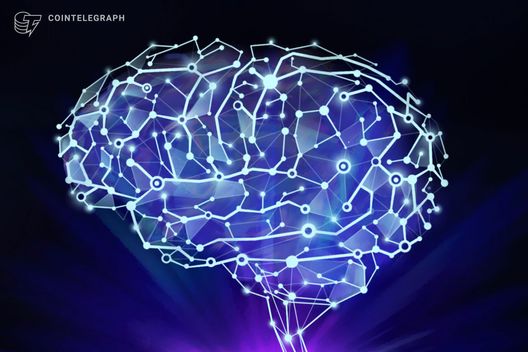
Opinion by: Andreas Melhede, co-founder of Elata Biosciences
Neuralink’s first-ever brain implant is popping science fiction into actuality. It’s a coin-sized device with hair-thin electrode threads {that a} surgical robotic weaves into the mind’s cortex to learn and ship neuron alerts. These alerts are then transmitted wirelessly to a pc, permitting the particular person sporting the implant to carry out actions without having to maneuver. Elon Musk, Neuralink’s founder, once highlighted that the company will “give individuals superpowers.”
Silicon Valley’s imaginative and prescient of a direct brain-computer interface (BCI) sounds thrilling. Designed to assist individuals with extreme paralysis, Neuralink’s implant permits individuals to maneuver a cursor, kind, and even management a robotic limb utilizing their ideas alone.
What some within the healthcare trade are failing to think about, nevertheless, is that there are profound implications when a single, billionaire-controlled firm owns the keys to somebody’s thoughts.
With regards to the human mind, centralization turns into a direct menace to autonomy. Our capacity to regulate our personal ideas and actions is essentially the most basic type of freedom we now have. Why ought to we hand that energy over to at least one particular person?
Outdoors of the mainstream, Decentralized Science (DeSci) is quietly reimagining how mind analysis will be completed and capturing the eye of scientific journals. It treats neuroscience as a shared public mission slightly than a product to be locked inside one firm’s servers. Most significantly, it lets individuals take again management over their mind knowledge.
Bringing the mind onchain
BCI expertise has change into a worldwide phenomenon. A gaggle of Chinese language researchers lately developed a BCI able to manipulating what a subject could or could not see, aiming to assist individuals experiencing partial or complete blindness.
Based on their findings, the “demonstration helps the chance that externally utilized focal stimulation can entry practical circuitry identified to underlie regular visible notion.”
The outcomes spotlight a robust proof of idea, but additionally elevate an essential query: Who controls this functionality?
If a 3rd celebration can management a main operate after a BCI chip is implanted, clear guidelines have to be established to make sure that energy is shared pretty. Decentralizing each analysis and management could possibly be the answer we’re on the lookout for.
Growing a future the place mind knowledge is each personal and shareable would require a transparent blueprint. Bringing the mind onchain means utilizing decentralized infrastructure to translate neural alerts into safe, verifiable digital knowledge. Information that stays totally beneath the person’s management.
The outcome?
A safe framework that lets individuals function software program by thought alone whereas sustaining absolute psychological freedom.
Decentralization issues for the human thoughts
Our brains generate essentially the most intimate knowledge conceivable. They’re a livestream of ideas most individuals wouldn’t be courageous sufficient to talk, feelings they’re not sure they really feel and intentions they’re but to satisfy.
Associated: Elon Musk’s Neuralink seeks patients globally to try its brain chips
Not like DNA knowledge, which describes an individual’s bodily look, mind knowledge predicts how one may act or really feel, making it one of the private items of knowledge one may share with the world. To centralize this type of energy is at hand over the working system of the self.
Decentralization isn’t a technical desire, however an ethical crucial.
When discussing centralized knowledge silos, we regularly overlook what they really entail. In essence, it’s ironic: Human existence is outlined by the truth that we now have full management over our personal minds. Nobody else has direct entry to our personal stream of ideas, and nobody ought to. To offer that management to a single firm is a direct contradiction of what it means to be human.
In a centralized enterprise mannequin, a single company decides how neural knowledge is saved, who can entry it, and what industrial incentives form its use. All of that is usually completed with out asking for affected person consent or beneath prolonged phrases and circumstances. However not like with procuring knowledge or looking historical past, clicking “I agree” right here dangers extra than simply privateness. It dangers ceding affect on how one strikes and speaks in instances when centralized programs get hacked.
Attackers would not simply steal affected person knowledge; they might intrude with their minds and actions.
In distinction, decentralization distributes that energy. It ensures that no single actor can unilaterally entry an individual’s most susceptible knowledge and take management over their lives. Encryption keys stay with the consumer. Entry to neural profiles is granted solely with express consent and will be revoked at any second.
Most significantly, decentralization additionally ensures pluralism. Simply as open-source software program enabled an explosion of innovation on the web and in banking, decentralized mind networks can foster various functions and not using a single entity dictating the phrases and circumstances of that psychological expertise.
Constructing a collective neural future
The following decade will decide whether or not brain-computer interfaces change into a real public good or a privately owned gateway into the human thoughts.
Collaboratively designed protocols can set the principles for a way gadgets talk and the way neural data is logged onchain, making certain that tools from any maker stays suitable. Token mechanisms can drive researchers to advance decoding methods, bolster privateness, and underwrite unbiased safety assessments. Consent-driven knowledge commons, protected with zero-knowledge encryption, can provide huge anonymized assets for discovery with out exposing private neural signatures.
Regulation has a job, however widespread involvement fuels the motion. From builders creating mind-controlled video games to artists composing music from brainwaves and clinicians crafting neurofeedback therapies, members change into co-owners in a clear, collectively ruled community.
Retaining our ideas personal is an unshakable human proper no particular person ought to ever be stripped of. So why ought to we be compelled to surrender our psychological privateness to a single centralized entity?
Bringing the mind onchain in an open, decentralized, and collectively ruled approach ensures everybody retains full autonomy over their very own minds.
Opinion by: Andreas Melhede, co-founder of Elata Biosciences.
This text is for normal data functions and isn’t supposed to be and shouldn’t be taken as authorized or funding recommendation. The views, ideas, and opinions expressed listed below are the writer’s alone and don’t essentially mirror or signify the views and opinions of Cointelegraph.
